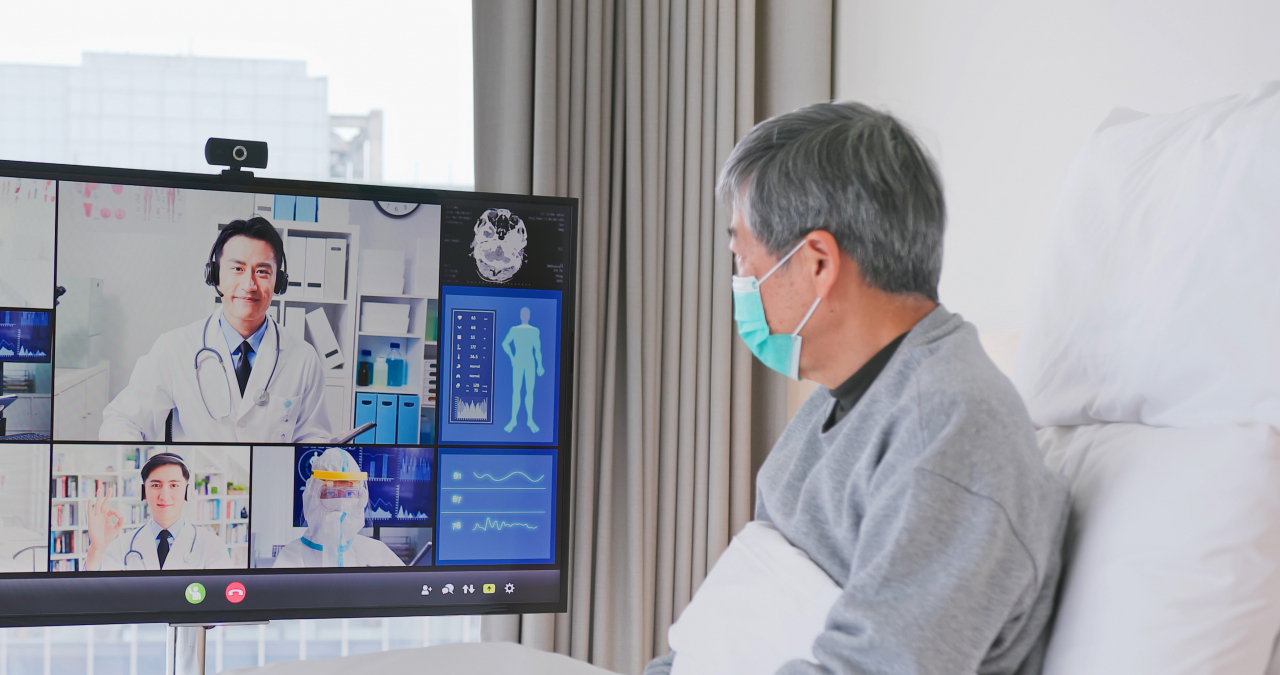 |
(123rf) |
Six major South Korean business lobby groups issued a joint statement Thursday, calling on the National Assembly to amend related laws to keep telehealth platforms running.
The groups, including the Korea Chamber of Commerce and Industry and the Federation of Korean Industries, asked lawmakers to legislate the medical law amendment bill to protect the telemedicine industry.
Telemedicine services boomed in Korea during the height of the COVID-19 pandemic, but they soon may no longer be available due to the absence of a supportive legal framework.
“Institutionalization of telemedicine treatment allowed by most (Organization for Economic Cooperation and Development) countries while we are blocked by regulations and do not even have a chance to secure competitiveness (in the sector)," the groups said in a statement.
They called for first-time patients to be allowed to use the platforms, in opposition to doctors’ arguments that only returning patients should be allowed to use telehealth platforms for safety reasons.
Telehealth treatment is usually illegal in Korea. It is permitted only in exceptional cases, such as medical care between medical personnel and medical care between medical personnel and patients in the event of a national infectious disease emergency like the COVID-19 pandemic.
Between February and December in 2020, the number of people who received telehealth services came to around 840,000, but the figure jumped to around 2 million in 2022, according to data from the Ministry of Health and Welfare. This figure does not include COVID-19 patients who received remote health monitoring services.
However, the services are likely to lose their legal right to continue, as the government is planning to downgrade the classification of the pandemic to "alert" from the current "serious" -- the highest level in its four-tier system for managing infectious diseases.
The downgrade is planned to take place when the World Health Organization decides to lift the emergency status of COVID-19, which is likely to happen this year, and could happen as early as its expert committee meeting on the disease status this month.
Before telemedicine services lose their legal basis, the Health Ministry has been trying to make amendments to the Medical Services Act and five bills aimed at institutionalizing telemedicine have been submitted and are pending.
But telemedicine platform operators expressed concern that the bills could jeopardize the industry.
The main problem they cite is that four out of the five bills pending at the National Assembly are aiming to make telemedicine services available for returning patients only.
“If the changed law allows only returning patients to use telemedicine services, existing platforms will become useless,” Korea startup forum Telemedical Industry Council President Jang Ji-ho said.
According to Jang, 99 percent of patients using the telemedicine services over the past years were first-time patients.
If the law is changed to ban first-time patients from using telemedicine services, the number of customers will quickly dwindle, as there are insufficient legal provisions for continuing care initiated elsewhere.
Under the current law, platform operators do not have access to patient medical records, meaning that they cannot develop any platform services that allow patients to find the doctors who examined them in the first place.
“The chances are also very low for patients to find doctors that work with telemedicine platforms. It will also be difficult for platform operators to link patients to the same doctors they worked with before in an emergency,” Jang added.
If the legal basis for telemedicine services disappears, the Health Ministry announced that it would run a demonstration project through which platform operators can continue their services at least until the related amendments are made into law.
However, whether the demonstration project will be able to protect the existing telemedicine platforms is in question.
“We have not heard anything yet about the demonstration project from the ministry,” Jang said.
The Health Ministry has been making efforts to institutionalize telemedicine services, as President Yoon Suk Yeol pledged during his presidential campaign.
“The government cannot just immediately ban telemedicine services that people have been using over the last three years,” a ministry official said.
The chances that the Health Ministry’s demonstration project will allow telemedicine services to be available for first-time patients, however, is very low, given that the majority of the bills pending in the National Assembly aim to make the services available only to returning patients.
The Health Ministry also noted that the demonstration project may not be able to allow telemedicine services available in the way they are currently provided, meaning that they will only be accessible to returning patients.
So far discussion on the pending bills in the National Assembly has been postponed. On Tuesday last week, the amendment bills related to non-face-to-face treatment were expected to be discussed in a subcommittee of the National Assembly Health and Welfare Committee. However, the meeting ended without addressing the bills.







